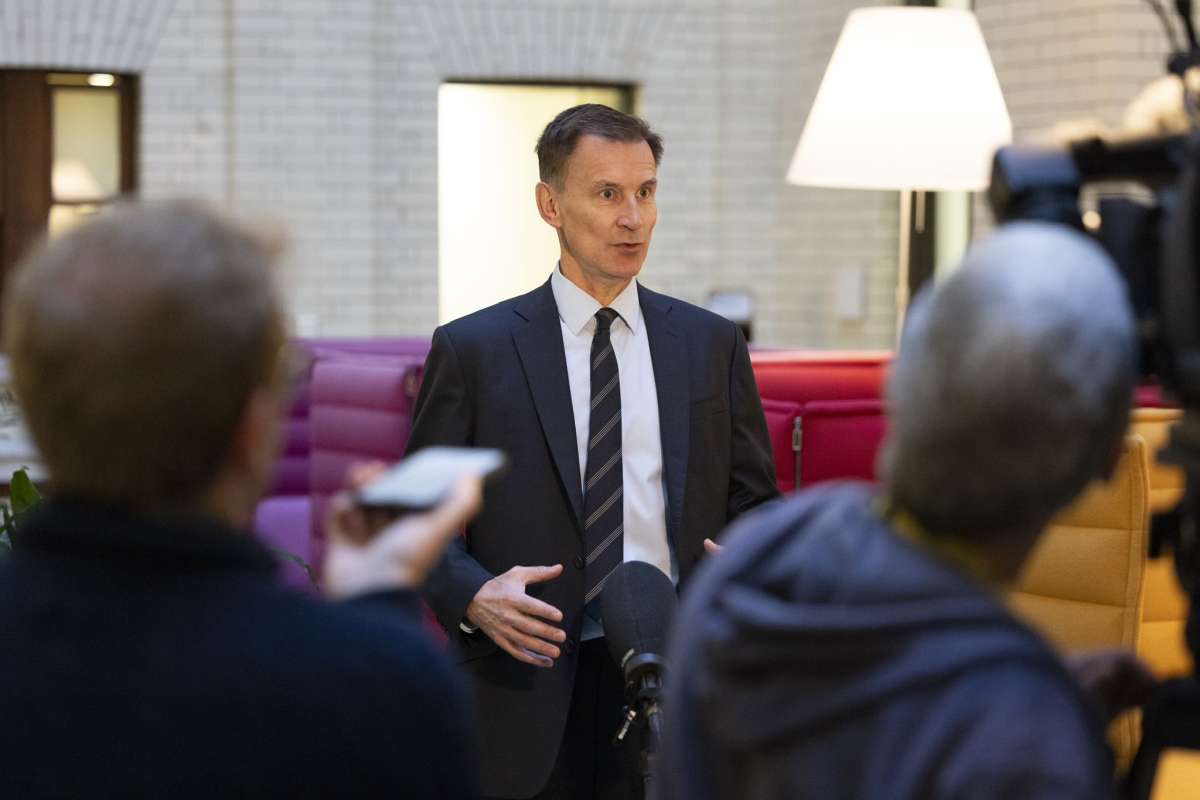Hunt said he would cut the main rate of national insurance by 2 percentage points to 10% from Jan 6 at a cost of about £9bn…reports Asian Lite News
Chancellor Jeremy Hunt has cut business and personal taxes by £20bn in an Autumn Statement aimed at boosting growth, but the UK’s budget watchdog warned that overall taxes are still rising to a postwar high.
The independent Office for Budget Responsibility shed a harsh light on Hunt’s fiscal plan, saying it would provide only “a modest” boost to growth and would see the tax burden rise for each of the next five years.
In a highly political statement on Wednesday, Hunt said he would cut the main rate of national insurance by 2 percentage points to 10 per cent from January 6 — the start of what is expected to be an election year — at a cost of about £9bn.
The other big measure saw the chancellor make permanent the “full expensing” capital allowance regime, at a cost rising to £11bn, which he described as “the largest business tax cut in modern British history”.
The timing of the national insurance cuts — benefiting 27mn working people — prompted speculation the government wants to leave open the option of a spring general election if its dire opinion poll ratings improve.
But the OBR said the tax cuts were dwarfed by the impact of the government’s freeze on tax thresholds between 2022-23 and 2028-29; it said nearly 4mn more people would end up paying income tax for the first time and 3mn more would move to the higher rate.
“While personal and business tax cuts reduce the tax burden by half a percentage point, it still rises in each of the next five years to a postwar high of 38 per cent of GDP,” the fiscal watchdog said.
Rachel Reeves, shadow chancellor, accused the government of presiding over record tax rises because of such “fiscal drag”, but did not commit Labour to opposing any of Hunt’s policy measures. Sir Ed Davey, Liberal Democrat leader, called the Autumn Statement “a hoax”.
The OBR also cut its forecast for economic growth and warned that the Autumn Statement’s measures to kick-start the economy would provide only “a modest boost to output of 0.3 per cent in five years”.
The chancellor had opted to leave government departmental spending “broadly unchanged”, the OBR said, reducing borrowing by £27bn compared with prior forecasts but leaving budgets squeezed.
Hunt said he would set a new target to keep public spending growth below overall economic growth “while always protecting services”.
Hunt claimed that, with inflation falling to 4.6 per cent and the OBR showing that debt was on a sustainable path, it was time to take the foot off the fiscal brake.
“Our plan for the British economy is working but the work is not done,” the chancellor said, as he set out 110 supply-side measures, intended to boost business, bring the sick back to work and get more capital flowing into the economy.
The full expensing of capital investment, which was due to expire in 2026, allows a company to immediately deduct all of its spending on IT equipment, plant or machinery from taxable profits. Extending it was a priority for business groups.
The chancellor said the measures would increase business investment in the economy by about £20bn a year within a decade and were “a decisive step towards closing the productivity gap with other major economies”.
The OBR said it expected the economy to grow 0.6 per cent this year and 0.7 per cent next year. This compares with the watchdog’s previous forecasts of a 0.2 per cent contraction this year and 1.8 per cent growth in 2024. The Bank of England expects growth to remain flat next year.
The chancellor confirmed that the state pension would rise by 8.5 per cent in April and that universal credit and other benefits would increase by 6.7 per cent, in line with September inflation, rather than the lower October level.
The OBR forecast that living standards, as measured by real household disposable income per person, would be 3.5 per cent lower in 2024-25 than their pre-pandemic level.
“While this is half the peak-to-trough fall we expected in March, it still represents the largest reduction in real living standards since Office for National Statistics records began in the 1950s,” it said.
Hunt also promised measures “to unlock the building of more homes” in the UK, which has consistently fallen short on government housebuilding targets.
These include a plan to refund planning fees if local authorities take too long to handle applications and £32mn to “bust the planning backlog”. Hunt also said he would freeze duty on alcohol, a move applauded by the industry.
ALSO READ-Hunt to claim economy is ‘back on track’

